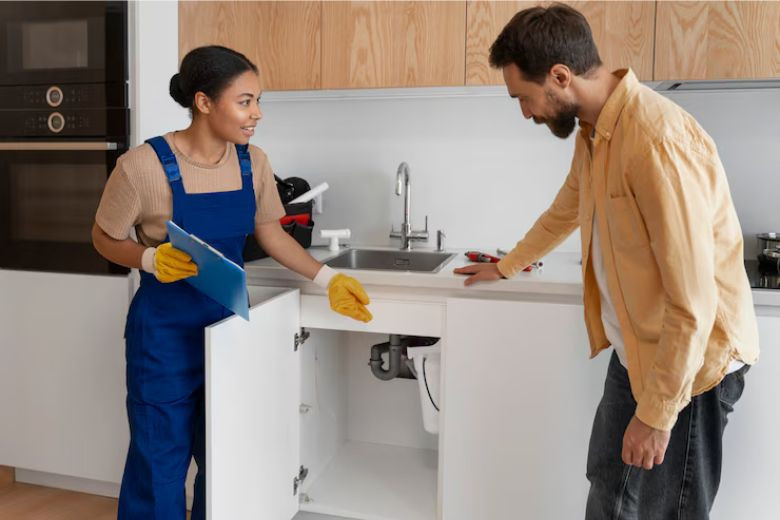How to Upgrade Your Home’s Plumbing System for Better Efficiency
Posted on August 30, 2024 by Admin

Upgrading your plumbing system is something that is surely going to bring in better runs of efficiency, reduce amounts of water used, and at the very end, save you some money from not having pricey repairs. With plumbing technology and materials greatly improved today, there are many benefits to be had for most homeowners. Here is a comprehensive guide on how to upgrade your home's plumbing system for better efficiency.
Assessing the current plumbing system
Before you upgrade your home's plumbing system, you have to assess your current plumbing. Check for leaks, corrosion, or old materials that will immediately give you an idea that your plumbing needs some updating or not. Knowing the weak spots of your system will help you identify which upgrades are more urgent than others.
Install Low-Flow Fixtures
Upgrading low flow fixtures is fairly painless and one of the most effective ways to update your home's plumbing system. Low-flow faucets, showerheads, and toilets use significantly less water than their older counterparts. That kind of fixture can easily help you save plenty of water, with a consequent decrease in utility bills.
Replace with PEX Piping
If your house still has old galvanized pipes, then replace them with PEX cross-linked polyethylene piping. It is flexible, durable, resistant to scale, and chlorine; hence, it's the superior choice to be implemented in modern plumbing. Also, a system is much easier to install, whereas this kind of material has fewer problems with leakage compared to the older piping materials.
Insulate Your Pipes
Probably insulation of pipes is among the most cost-effective ways to improve your residential plumbing. Pipe insulation sustains both hot and cold water temperatures, thereby cutting down on the energy that is used in heating water and lessening heat loss. This also protects them from freezing in colder climates, keeping away the associated risks of burst pipes and consequent water damage.
Install a Tankless Water Heater
The traditional water heater stores and continues to heat a large volume of water, which is inefficient and very expensive. Upgrade your tankless water heater and get hot water on demand to reduce energy consumption and save utility bills. Tankless water heaters will last longer with reduced maintenance compared to the traditional ones.
Install a Water Filtration System
Another good enhancement to your home plumbing would be the installation of a whole-house water filtration system. What this does is remove all impurities from the water supply at home, hence leaving you with cleaner and safer water for drinking, cooking, and bathing purposes. This again affects the taste and quality of your water and will protect all the plumbing fixtures and appliances from damage due to impurities.

Employing Smart Technology
These smart technologies bring enhanced efficiency and convenience to plumbing systems, whether during new installation or retrofitting. Smart leak detectors can detect a leak and alert you before it becomes a big problem, thus enabling its quick repair and thereby preventing water damage. Smart water monitors track your water usage in real-time; hence, you can identify ways through which you can save water and consequently lower utility bills.
Regular Maintenance
Yet another aspect of upgrading your plumbing system at home is its maintenance. Keeping up with the yearly inspections by a professional plumber will help in recognizing and solving impending problems before they get out of hand. This will help in keeping the plumbing system running efficiently and maintaining it so that the fixtures and appliances last long.
Conclusion
Upgrading your in-house plumbing system is useful in many ways, as it enhances efficiency and saves water while reducing the risks of expensive repairs. Low-flow fixtures, PEX piping, insulated pipes, tankless water heaters, a water filtration system, and intelligent technology all these upgrades will help much in improving your plumbing system's performance. However, frequent maintenance is also essential for keeping your plumbing up to par and running smoothly. All of these upgrades prove to have an immediate positive impact but are also valuable assets toward long-term savings and a much more sustainable home.
Also Read :
How to Identify and Repair Hidden Water Leaks
The Benefits of Regular Drain Cleaning Services
How to Plan a Bathroom Remodel with Plumbing in Mind
Faqs
-
1. Why do I need to upgrade my home's plumbing system?
The necessary upgrading of your home's plumbing system will grant an increase in efficiency, reduce water consumption, lower utility bills, and prevent expensive repairs from happening. New plumbing technology and materials improve significantly on older systems in terms of performance and reliability.
-
2. What are some of the benefits of low-flow fixtures?
Low-flow fixture installations help reduce the amount of water consumed without affecting performance. These are low-flower faucets, showerheads, and toilets that would help use far less water compared to the traditional ones in service, saving lots of water and utility bills.
-
3. How does pipe insulation help with plumbing efficiency?
Pipe insulation maintains water temperature, reducing the energy that goes into heating the water by preventing heat loss. It would also prevent the pipes from freezing in colder climates, reducing the risk of burst pipes and subsequent water damage.
-
4. What are some advantages of a tankless water heater?
A tankless water heater heats water only when required, using less energy and saving utility bills. This type of tankless water heater has a longer life, lower maintenance, and space consumption compared with traditional water heaters that store and always heat a large tank of water.
-
5. How does smart technology improve my plumbing system?
Smart leak detectors and water monitors are some of the smart technologies that can significantly improve plumbing efficiency and convenience. Smart leak detectors warn users of a possible problem in water leakage before it becomes a major issue, enabling repairs quickly and avoiding water damage. On the other hand, smart water monitors track your usage in real time to let you know where you could save water and consequently shave some dollars off your utility bills.
Recent Post
- Top Plumbing Service Providers in Arizona, USA
- Top 10 Electrician Service Providers in Alabama, USA
- Top 20 Roof Repair Service Providers in Alabama, USA
- The Role of Roof Insulation in Energy Efficiency: Tips and Tricks
- Understanding Roof Damage from Wildlife and How to Prevent It
- How to Choose the Best Roofing Contractor for Emergency Repairs
- Roofing Maintenance for Historic Homes: Preserving Architectural Integrity
- The Importance of Proper Attic Ventilation for Roof Health
- How to Identify and Prevent Roof Mold and Mildew
- The Best Practices for Removing Snow from Your Roof